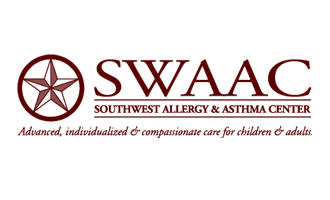Sinus infections, or sinusitis, are common conditions that can cause significant discomfort. They occur when the sinuses, which are air-filled spaces behind the forehead, nose, and cheeks, become inflamed or infected. These infections can develop due to a cold, allergies, or other respiratory issues. But how do you know if you have a sinus infection, and what are the key signs to look for? In this blog post, we will explore the typical symptoms of sinus infection, discuss related conditions like sinus infection fatigue, and answer common questions such as “Will a sinus infection cause a fever?” and “Can a sinus infection cause body aches?”
Common Symptoms of a Sinus Infection
Sinus infections are often characterized by symptoms ranging from mild to severe. Recognizing these symptoms is the first step toward understanding whether you might have a sinus infection.
- Facial Pain and Pressure- One of the hallmark signs of a sinus infection is a feeling of pressure or pain in the face. This can occur in the forehead area, cheeks, or around the eyes. The pain may feel like a constant ache or intensify when you bend over or lie down. The inflammation in the sinuses puts pressure on surrounding tissues, causing this discomfort.
- Nasal Congestion Nasal- congestion is another common symptom. When your sinuses become inflamed, the mucus lining them swells and blocks the passageways. This can lead to a stuffy or runny nose, making it difficult to breathe through your nose. The congestion may also cause a feeling of fullness in your ears.
- Green or Yellow Nasal Discharge: A sinus infection often leads to changes in the mucus, which may become thick and discolored. If you notice green or yellow nasal discharge, it’s a strong indicator that you may have a sinus infection. The color change usually happens due to bacteria or other pathogens in the sinuses.
- Coughing and Sore Throat Post-nasal drip, where mucus from the sinuses drains down the back of your throat, can lead to a sore throat and persistent coughing. The cough tends to worsen at night as the mucus accumulates when lying down.
- Headache: The pressure from the inflamed sinuses can also result in a headache. This type of headache is typically felt in the forehead, around the eyes, or in the upper cheeks and can be exacerbated by leaning forward or sudden movements.
Sinus Infection Fatigue: Why You Feel Tired
One of the less-discussed symptoms of a sinus infection is fatigue. Many people with sinusitis report feeling unusually tired or sluggish, even if they are getting enough sleep. So, why does a sinus infection cause fatigue?
When the body fights an infection, the immune system works hard to combat the bacteria or viruses causing the inflammation. This energy expenditure can leave you feeling drained and fatigued. Additionally, disrupted sleep due to nasal congestion or coughing can contribute to feelings of tiredness during the day.
Sinus infection fatigue can be particularly frustrating because it often lingers even after other symptoms like facial pain or nasal congestion begin to improve. Rest and staying hydrated are key to helping your body recover. Still, if fatigue persists for over a week, it’s essential to consult a healthcare provider to rule out any complications.
Will a Sinus Infection Cause a Fever?
Many people ask whether a sinus infection will cause a fever. The answer is yes, but not always. Some people with sinus infections experience a mild fever, especially during the first few days when the body is fighting the infection. The fever typically ranges between 100°F and 102°F and may be accompanied by chills.
However, not all sinus infections cause a fever. In some cases, the disease may be mild or caused by a virus, in which case a fever may not occur. On the other hand, if the infection is bacterial, there is a higher likelihood of developing a fever.
If you have a fever lasting more than a couple of days, it could be a sign that the infection is more severe or that you may be dealing with a secondary infection. In such cases, consulting with a healthcare provider for proper diagnosis and treatment is essential.
Can a Sinus Infection Cause Body Aches?
Another common question is whether a sinus infection can cause body aches. While sinus infections are primarily associated with the sinuses, they can also trigger general symptoms like body aches. This is more likely if the disease is viral, such as the kind related to the common cold or flu.
When your body is fighting off an infection, it can lead to widespread aches and pains, particularly in the muscles and joints. This is often seen in conjunction with other flu-like symptoms, such as chills, fatigue, and a mild fever. If you’re experiencing body aches, nasal congestion, facial pressure, and a sore throat, there’s a good chance that your symptoms are due to a sinus infection.
When Should You Seek Medical Attention?
In many cases, sinus infections resolve on their own within a week to ten days, mainly if they are viral. However, there are times when you should seek medical attention. These include:
- Severe or prolonged symptoms: If your symptoms last longer than 10 days without improvement, it may be time to consult a healthcare provider. A persistent infection could indicate a bacterial sinus infection that requires antibiotics.
- High fever: If your fever exceeds 102°F or lasts more than a few days, it’s important to seek medical advice. This could signal a more serious infection or a complication.
- Severe headache or vision changes: If you experience a sudden, severe headache or notice changes in your vision, these could be signs of a more serious condition, such as a sinus infection spreading to nearby areas like the eyes or brain.
- Swelling around the eyes or forehead: Swelling in the face, especially around the eyes or forehead, could indicate that the infection is spreading and medical intervention is needed.
A sinus infection can cause various uncomfortable symptoms, including facial pain, nasal congestion, coughing, fatigue, and headaches. If you’re wondering how to know if you have a sinus infection, these symptoms are a good place to start. While sinus infection fatigue, fever, and body aches can accompany the condition, monitoring your symptoms and seeking medical advice if they persist or worsen is important. In most cases, sinus infections improve on their own, but with the proper care, you can manage the discomfort and recover more quickly.
If you are struggling with sinus issues and need help, schedule an appointment with one of our sinus experts. With locations in Plano, Allen, Murphy, Frisco, McKinney and Dennis, we are here to help you! Find your local Southwest Allergy and Asthma clinic location and schedule your appointment today.





